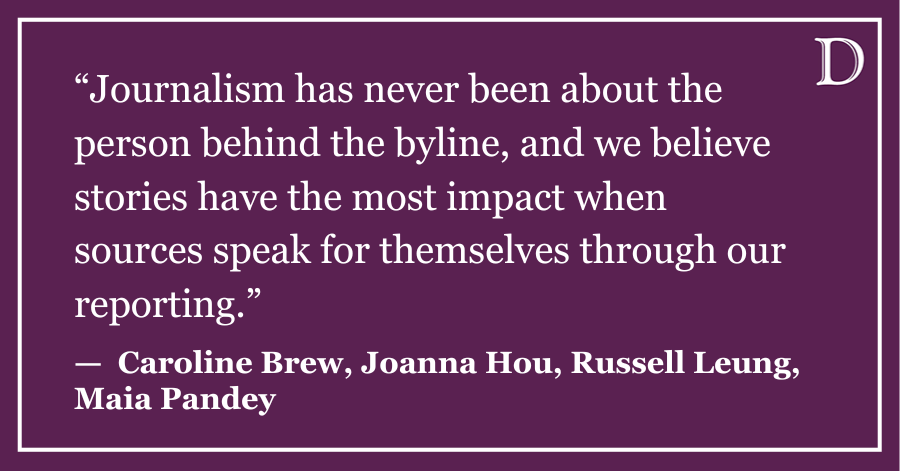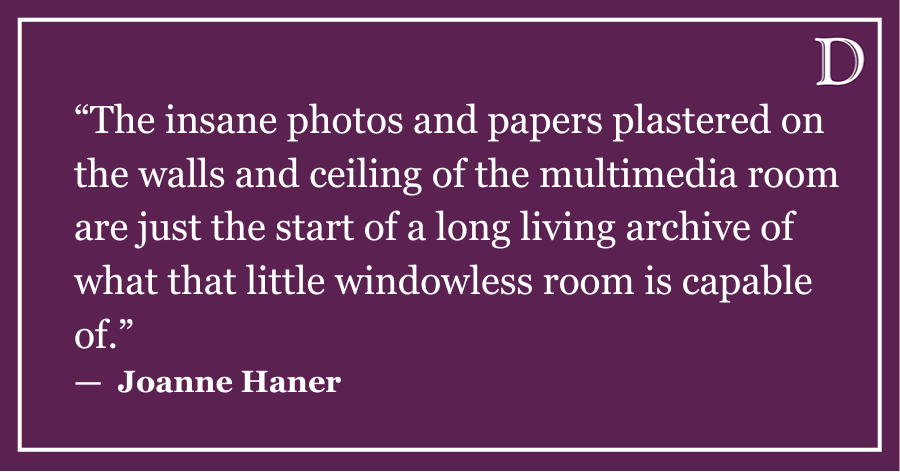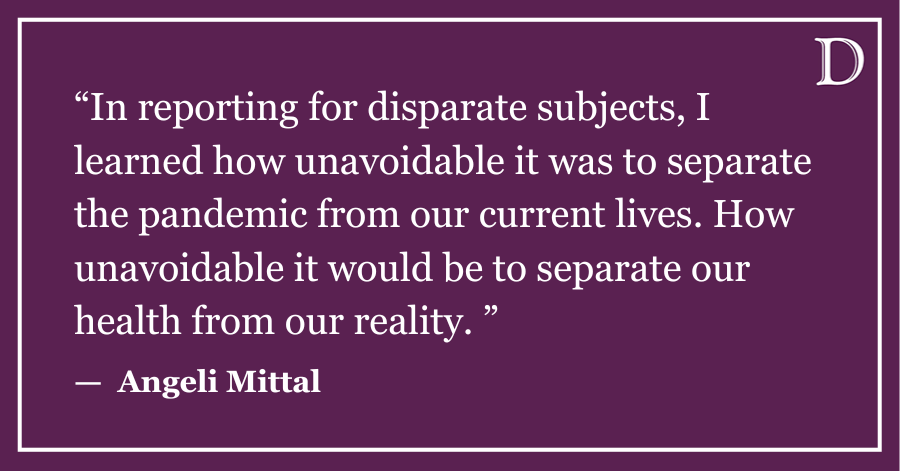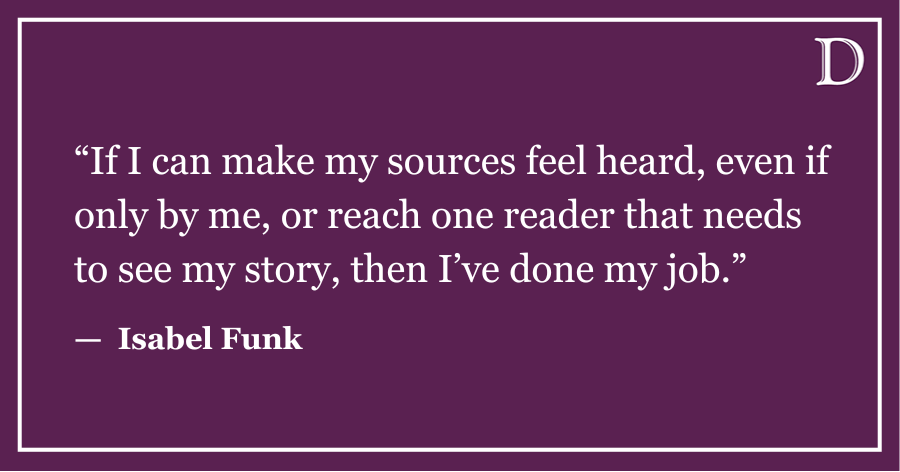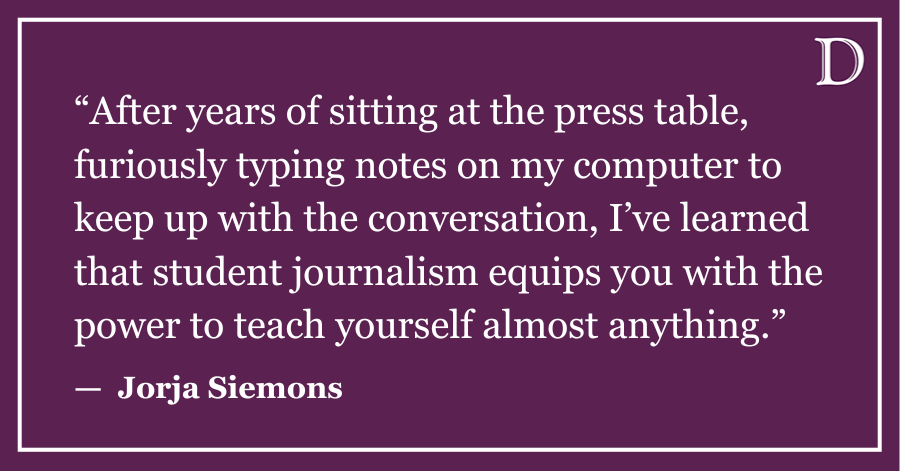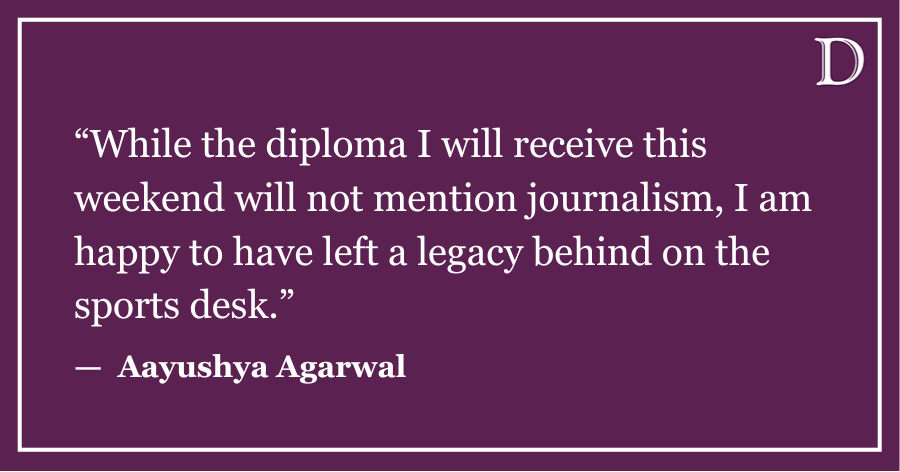It’s a personal hell of mine to exist as a journalist and a habitually private person. From my understanding, one point of journalism, (unless you’re a columnist and even then), is that the journalist should not be the story. So it’s a little weird to think that after four years of chronicling other people’s lives in these faded, newsprint pages, it’s time to write a column all about me and my experiences at The Daily Northwestern and Northwestern University at large*.
If I were to write a generic senior farewell, I’d probably start with a little anecdote about how I began working at this paper, mention people who supported me along the way, add more information about some things I did here, and wrap it up with a bow in the form of a lesson about community, friendship, empowerment, finding myself and other common themes of young adult, coming-of-age novels. These are all great stories that you should read and digest, but you won’t be getting any of the above out of me. Not because I don’t think I deserve it, but because there are plenty of those narratives to go around.
Instead, I invite you to think about the same existential question that journalism posed to me as a habitually private person. Each time I picked up the phone to call a source, a small voice in the back of my head asked “Why are you so entitled to this person’s opinion?” Clearly it wasn’t loud enough to stop me, but it did give me pause when approaching sensitive stories or when interviewing someone who wasn’t thinking about how their words might affect future job prospects or their reputation.
What made me proud to work at The Daily Northwestern was that I joined this publication at a time where staffers were questioning their own entitlement. The broad brushstroke journalists use when defending our craft is that we’re about transparency and holding power to account. These are great missions on paper, but in practice, they’re messier than one would expect.
Entitlement is dangerous, and most sources can sniff out a bad motive (“we’re doing it for the greater good!”) behind a question in a heartbeat. If you want information, you better have a good reason in the eyes of the person you’re asking, and it can’t be “just ‘cause!” Are you looking to better something about this person’s situation by revealing inequality? Are you helping a deceased individual be remembered more completely in an obituary? Are you documenting a political event so that readers can see the truth about what’s happening and respond accordingly?
To me, these reasons are way better than the self-aggrandizing, navel-gazing, and frankly, disturbingly entitled viewpoint of journalists who invade private lives, extract information and cast aside the consequences as necessarily casualties created in the pursuit of an amorphous and mystical “truth.” See exceptions: Broken promises and lies from governments, companies and other entities (including media!) who claim to be in service of others but fall short of that expectation.
As a private person, the only way you’re getting me to share my story is to demonstrate that your inquiries are rooted in impartial curiosity, empathy or a genuine want to lend history a more complete truth. Anything less than that, and I’m afraid the only stories out there will be from people who shout unprompted for opportunities to put their own story on center stage.
It’s been a good run. Thank you to my friends, family, partner and hamster for getting me through each day. The journalists I worked with and the people they wrote about taught me a lot about myself, and for that, I am grateful.
*In fact, my commencement speech (to be posted next week on the Class of 2024’s graduation website) goes seven paragraphs until I crop up for two sentences and disappear for the rest!

